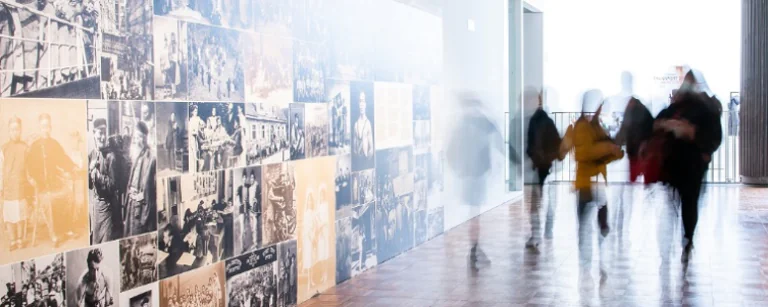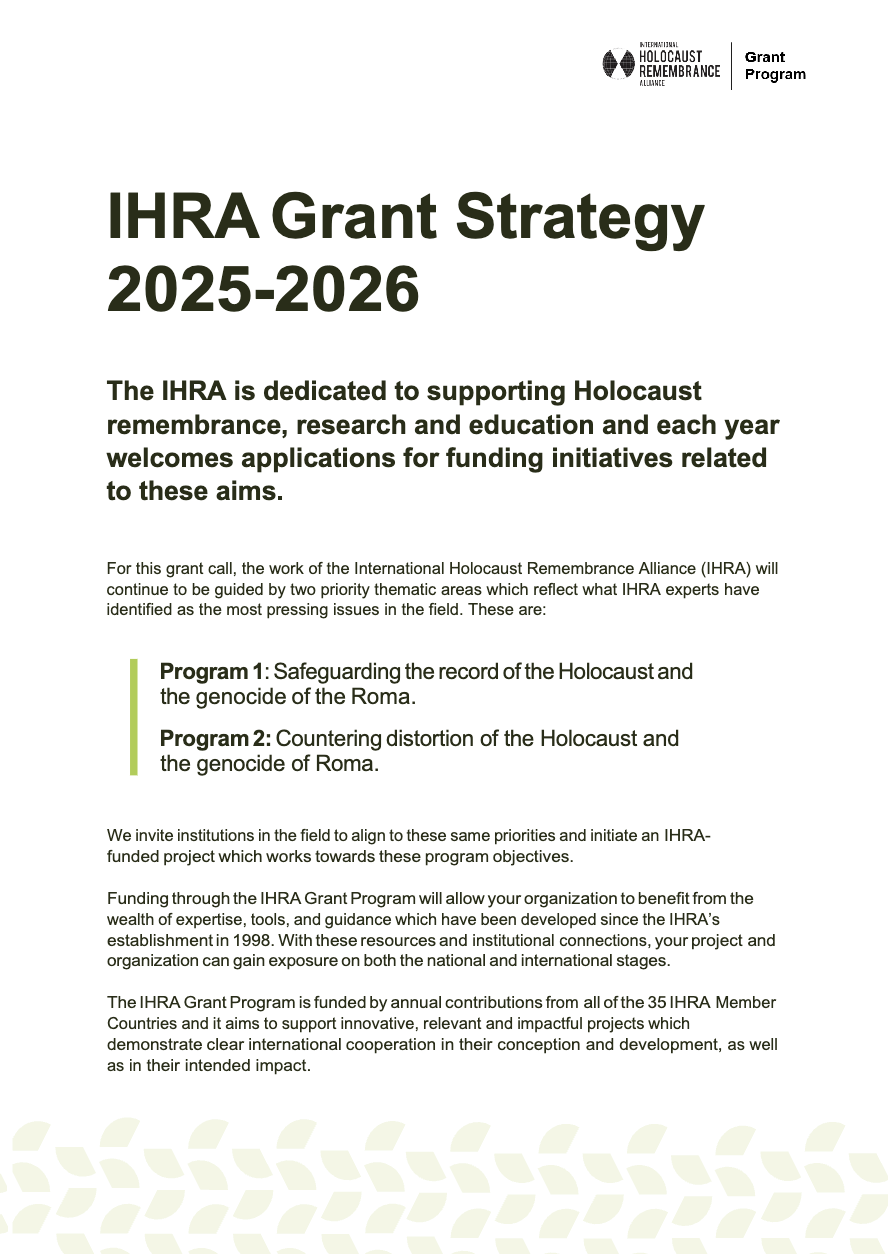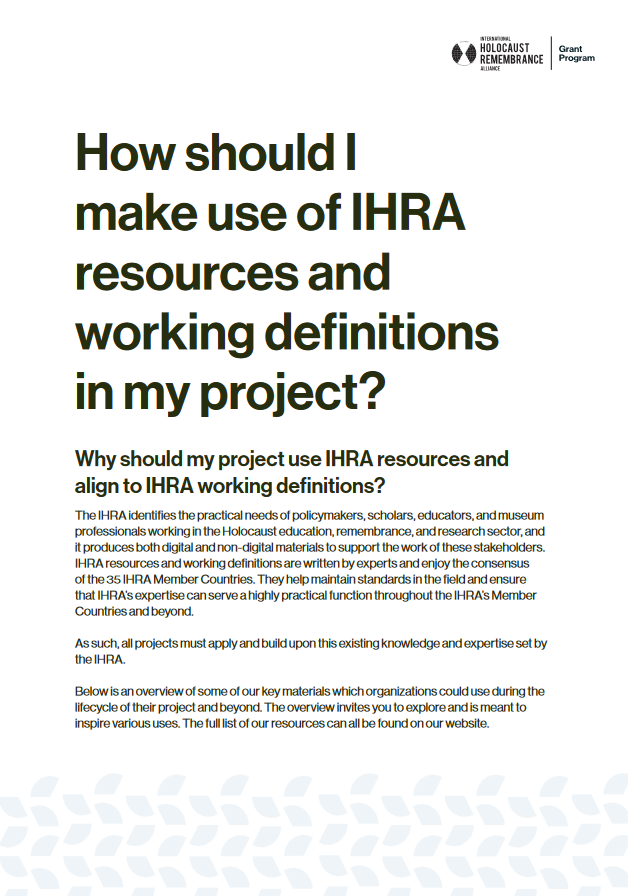IHRA Grant Program

Through the IHRA Grant Program, we are able to fund projects of external organizations. The Grant Program is core to our work as an organization, and projects that receive IHRA funding also have access to the IHRA’s expertise, tools, and guidance.
This page is about the IHRA Grant Program, including what we fund and how to apply for funding for your organization’s project.
The 2025 IHRA Grant Call is now open.
All applications must be submitted via our application portal.
The IHRA Grant Program welcomes applications from all over the world and from any organization or institution in the field of education, remembrance, and research of the Holocaust and the genocide of the Roma.
The projects we co-fund are innovative, relevant, and impactful, have a clear international component, and either safeguard the record of the Holocaust and the genocide of the Roma (Program 1), or counter distortion (Program 2).
We are pleased to announce the winners of the 2024 IHRA Grant Program. These 11 projects will collect and publish new survivor and witness testimonies, develop new toolkits and guidelines for educators and policymakers, tackle online Holocaust distortion, and locate and publish undiscovered historical archives.


The IHRA is proud to announce the projects it is funding for the 2024 grant cycle.
Discover some of the grant projects we have supported in the past few years.
Our grant guidelines contain all the information you will need to make an application for funding. Please read them carefully before starting your application.

IHRA Grant Projects are required to make use of IHRA resources. Learn how with this Resources Explainer.

For the 2025 Grant Call, the maximum amount of funding an organization can receive is €30,000 over a maximum period of 24 months.
Over the last decade, the IHRA Grant Program has funded over 150 projects from around the world, supported by annual contributions from each of the IHRA’s Member Countries.
The IHRA works closely with each project, and our expertise means organizations are able to reach a level and an audience which they probably wouldn’t be able to reach by working alone.
These projects have provided the field with innovative approaches in areas like: teaching about the Holocaust or genocide of the Roma; collecting and publicizing untold testimonies; combating antisemitism and antigypsyism; and countering distortion of the Holocaust and genocide of the Roma.
Core to their success is their international approach, allowing them to share ideas and approaches with a wider range of people and organizations, and build networks between different countries and regions.
The 12 grant call cycles completed between 2019-2022 saw:
The call for applications has opened. Applicants should first submit project abstracts via the application portal by 6 October. Applicants with successful abstracts will be notified by mid-October, and invited to submit a full application via the application portal.
For more information, see the Grant Guidelines Document.
If, at the time of applying, confirmation from other funding sources has not yet been received, the applicant should list all potential co-funders that have been contacted. The applicant must furnish proof that other donors have committed themselves to co-funding or that co-funding will be provided from other sources to receive the initial instalment of 70% of the total allocation.
Every IHRA-funded project must take an international approach. Projects should bring together target groups and project partners from at least two different countries.
No, you must find at least one project partner in a different country. Our international directory of Holocaust organizations might help you identify another organization to partner with.
The IHRA does not fund individual research or monographs. We do, however, fund joint research projects. Please apply through your research consortium, institution, or university.
Read the IHRA resource explainer for a complete guide to using our resources and working definitions.
If you have a question that hasn’t been answered above, please email us at grants@holocaustremembrance.com.
By signing up to the IHRA newsletter, you agree to our Privacy Policy